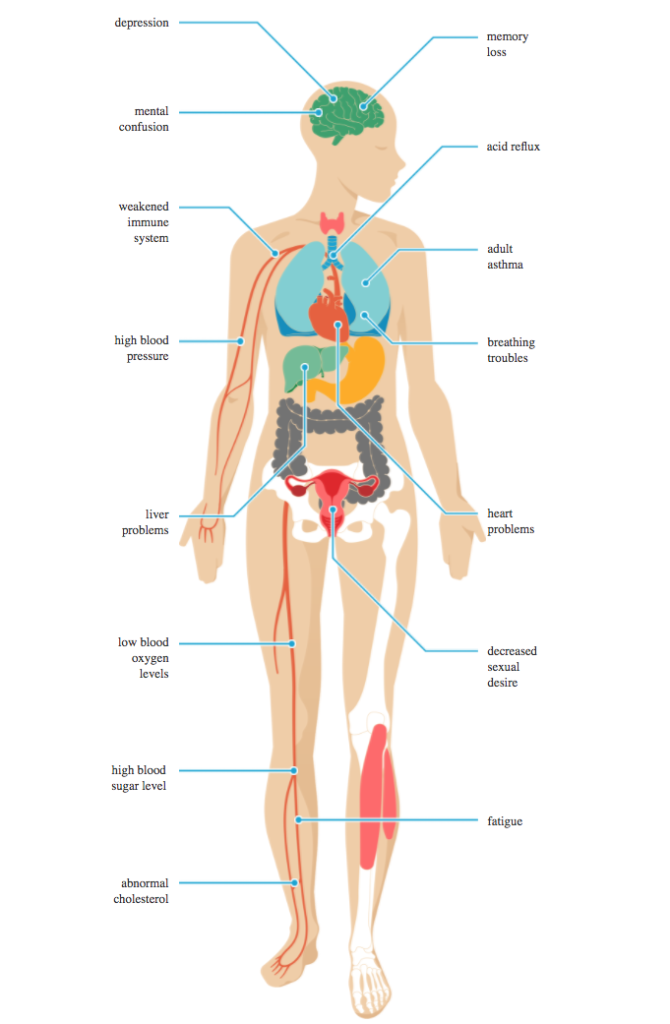The Effects of Sleep Apnea on the Body
Written by Stephanie Watson | Medically Reviewed by Elaine Luo, MD on June 29, 2017 | Healthline.com
Respiratory system
By depriving your body of oxygen while you sleep, sleep apnea can worsen symptoms of asthma and chronic obstructive pulmonary disease (COPD). You might find yourself short of breath or have more trouble exercising than usual.
Endocrine system
People with sleep apnea are more likely to develop insulin resistance, a condition in which the cells don’t respond as well to the hormone insulin. When your cells don’t take in insulin like they should, your blood sugar level rises and you can develop type 2 diabetes.Sleep apnea has also been associated with metabolic syndrome, a cluster of heart disease risk factors that include high blood pressure, high LDL cholesterol levels, high blood sugar levels, and a larger-than-normal waist circumference.
Digestive system
If you have sleep apnea, you’re more likely to have fatty liver disease, liver scarring, and higher-than-normal levels of liver enzymes.Apnea can also worsen heartburn and other symptoms of gastroesophageal reflux disease (GERD), which can interrupt your sleep even more.
Circulatory and cardiovascular systems
Sleep apnea has been linked to obesity and high blood pressure, which increase the strain on your heart. If you have apnea, you’re more likely to have an abnormal heart rhythm such as atrial fibrillation, which could increase your risk of a stroke. Heart failure is also more common in people with sleep apnea.
Nervous system
One type of sleep apnea, called central sleep apnea, is caused by a disruption in the brain’s signals that enable you to breathe. This type of sleep apnea can also cause neurological symptoms like numbness and tingling.
Reproductive system
Sleep apnea can reduce your desire to have sex. In men, it could contribute to erectile dysfunction and affect your ability to have children.
Other systems
Other common symptoms of sleep apnea include:
- dry mouth or sore throat in the morning
- headache
- trouble paying attention
- irritability
Takeaway
Sleep apnea can disrupt your nightly slumber and put you at risk of several serious diseases, but there are ways to control it. Treatments, such as continuous positive airway pressure (CPAP) and oral appliances, help keep oxygen flowing into your lungs while you sleep. Losing weight can also improve sleep apnea symptoms while reducing your heart disease risk.





